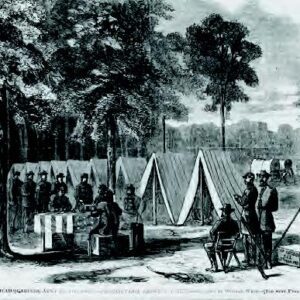May 20, 2024
National Dispute on Safety, and Management’s Use of Freight Brokerages
The APWU is committed to ensuring that the Postal Service provides a safe and secure workplace for bargaining unit employees. The union leadership has taken the complaints about freight auction drivers who do not wear badges to identify themselves on postal property very seriously.
Postal badges allow individuals to be identified and are proof that proper background and security checks through the USPS Inspection Service have taken place. The complaints from our members, in combination with information obtained from an USPS Office of Inspector General (OIG) Contract and Trucking Safety Audit report, has led the APWU to fi le a National Dispute on March 22, 2024, citing Article 14 Safety and Health and Article 19 Handbooks and Manuals, to protect postal employees from possible threats.
The Postal Service transports mail and packages by means of postal employees and subcontracted private sector drivers. Private-sector mail haulers competitively bid for Highway Contract Routes (HCRs) from the Postal Service. Until 2022, asset-backed carriers were awarded the vast majority of HCR contracts. The asset-backed carriers owned their own equipment and employed drivers directly. Drivers for the asset-backed carriers are subject to MI-PO-530-2009-4, which is a management screening protocol to determine the asset-backed carriers’ eligibility to access mail and mail-processing facilities. This screening process consists of a personnel questionnaire, background investigation, fingerprints, a review of the driver’s current driving record, the submission of two passport sized photos, and a drug screening.
There are automatic factors which disqualify drivers from gaining access to mail and mail-processing facilities, which include: the applicant driver being the subject of outstanding warrants, controlled substance convictions within the last five years, felony convictions within the last five years, and if there is an established pattern of criminal conduct that could undermine the efficiency of the Postal Service or the safety of its employees. This policy is in place to ensure the safety of postal employees and the mail. National Dispute on Safety,
Since 2022, the Postal Service has used more freight brokerage firms to transport mail. These firms do not own equipment or employ drivers directly. They operate by receiving trips from the Postal Service and placing those trips on freight auction boards for drivers to accept. The Postal Service initially used freight auction to cover emergency trips, but has now shifted to the firms being awarded HCRs.
According to the USPS OIG Contract and Trucking Safety Audit report, there were 241,006 freight auction trips in Fiscal Years (FY) 2022 and 2023 (53,433 trips FY22 and 187,573 FY23). None of the drivers on these trips were subject to the same vetting process that asset-backed carrier drivers are subject to in the protocols of MI-PO-530-2009-4. The Postal Service only requires freight drivers to provide a color picture to an Administrative Official when arriving at a postal facility to gain temporary access. The freight drivers are not subject to background checks, drug screening, a driving history review, or any of the standards in MIPO- 530-2009-4. The contention that management is not adhering to their own policy is the core of our National Dispute.
The increase in unvetted freight auction drivers is an additional threat to our APWU private sector mail haul drivers’ jobs. These drivers are employed by asset-backed carriers. The Postal Service’s increase in freight auction has come at the cost of lost trips, routes, and contracts for our private sector mail haul drivers. They have experienced decreased hours and increased layoffs. Stopping the use of unvetted freight drivers protects our APWU mail haul drivers’ jobs.
The APWU will always be proactive for the safety and security of our membership. We will challenge management’s business decisions that are unsafe before problems develop. ■



